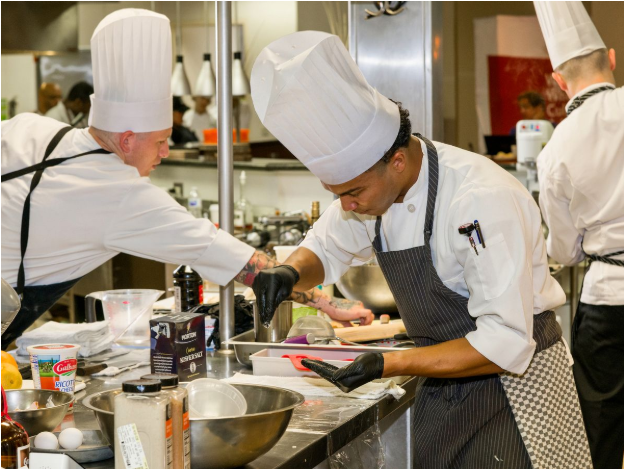Every special occasion brings its own charm—and its own culinary expectations. Whether it’s a wedding, milestone birthday, or corporate gala, the food plays a central role. It’s not just about taste but also timing, presentation, and planning. Great meals begin with thoughtful preparation, and when you get that part right, everything else falls into place. Let’s explore the best practices that help elevate food preparation for any big event.
Planning The Menu Around The Occasion
Different occasions call for different flavors. A backyard anniversary party might lean toward grilled selections and fresh salads, while a black-tie fundraiser might require plated gourmet meals. Understanding the theme and tone of the event is the first step. Once you know the crowd and the vibe, you can match the menu to the moment. Seasonal ingredients and dietary preferences should be factored in early to avoid last-minute surprises.
Working With A Catering Company For Seamless Execution
A catering company is a professional service that handles food preparation, cooking, and presentation for events. Partnering with the right one can make or break your event. These teams know how to navigate tight timelines, large headcounts, and high expectations. From sourcing quality ingredients to setting up elegant serving stations, their expertise ensures consistency and flavor in every bite. If you want your food to be the highlight of the night, a skilled catering company will bring that vision to life.
Understanding The Cuts Of Beef For Perfect Portions
The term cuts of beef refers to the different sections of meat taken from a cow, each with its own flavor, tenderness, and cooking method. From ribeye to brisket, understanding which cut suits your occasion is essential. For example, tenderloin offers a luxurious texture ideal for formal dinners, while chuck is hearty and perfect for slow-cooked comfort dishes. Knowing your cuts of beef helps you match the dish to the audience. Whether you’re slicing for sliders or carving a roast, the right choice ensures a memorable meal.
Setting Up A Functional Prep Space
Before the first onion is chopped, your workspace should be clean, organized, and efficient. Special occasion prep requires a zone where everything has its place. There should be stations for washing, cutting, marinating, and plating. This reduces mess, improves flow, and keeps the kitchen calm, even under pressure. Having prep lists and labeling ingredients ahead of time makes execution smoother.
Balancing Freshness With Make-Ahead Dishes
Some dishes are best when made minutes before serving, while others benefit from rest and reheating. Striking a balance between the two is key. Appetizers, sauces, and desserts can often be prepped the day before, giving more time to focus on main dishes during the event. Fresh herbs, last-minute garnishes, and final plating should be saved for the moment.
Training Your Team For Consistency
Whether you’re working with a professional crew or a group of eager family members, preparation works best when everyone knows their role. Clear instructions, tasting trials, and timing rehearsals prevent confusion. Teach the difference between a rare steak and a medium one, or how to serve portions consistently. A little training goes a long way in maintaining quality. After all, consistency is what separates a good meal from a great one.
Conclusion
Special occasions deserve special meals. From selecting the right cuts of beef to teaming up with a reliable catering company, every detail in food preparation adds to the experience. With careful planning, efficient spaces, and a well-prepared team, you can serve dishes that guests will talk about long after the plates are cleared.

